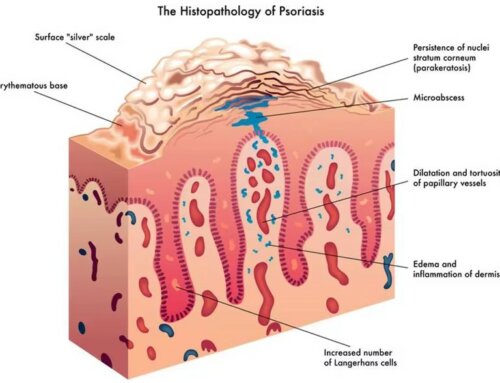From fall leaves to spring pollen, allergies can strike during any season. People might be allergic to dust, pollen, animals, certain foods and other common environmental elements. Because people with diabetes are particularly vulnerable to allergies, it is essential to discover how to minimize the symptoms.
Allergies and Diabetes are both Autoimmune Disorders
The American Academy of Allergy, Asthma and Immunology reports approximately 50 million Americans suffer from allergies. Allergies are an autoimmune disorder as is type 1 diabetes. Many people with type 1 or 2 diabetes may also have allergies. The body’s natural response to allergens is to fight them. As a result, you experience symptoms such as sneezing, watery eyes, congestion, and a dry throat. Sometimes your eyes are itchy, and you get swelling of the face, lips, tongue or hands. Other symptoms may include chest heaviness or tightness and difficulty breathing as well as a stomach discomfort and bloating.
The Ramifications of Dehydration: Allergies and Diabetes
Allergies may cause your body to become dehydrated. When people with diabetes suffer dehydration, it may lead to fluctuating blood sugar levels and an elevated heart rate. Drink plain filtered water throughout the day to prevent the release of histamines. Your body releases histamine to stop water loss, and this triggers allergy symptoms. Stay hydrated to eliminate allergy symptoms and avoid blood sugar surges. When you exercise, keep bottled water handy to avoid dehydration.
Foods and Allergy Symptoms
Certain foods may aggravate allergy symptoms. You may need to avoid beverages and foods that produce mucous such as dairy products including milk, cheese, yogurt and ice cream. Be aware that alcohol, such as red wine, contains sulfites and may cause allergic symptoms including headaches. Drinking alcohol can also cause fluctuating blood sugar levels. Because allergy symptoms may impact your blood sugar levels, make sure to test your blood sugar regularly.
Testing for Food Allergies
Talk to your health care provider about getting tested for food allergies. Food intolerances may increase insulin resistance, inflammation and autoimmune destruction of cells. Work with a dietitian, and/or diabetes nurse educator to develop a diet plan that works for you.
Check Your Indoor Environment for Allergens
Often people believe they can avoid allergy symptoms if they stay indoors. This does not work if your indoor air contains allergens. Clean your furnace and air conditioner filters. An air filter tower can help minimize your allergy symptoms. Another option is a humidifier if the air in your home or workplace is dry. If you are allergic to pollen, try to stay indoors during the early morning hours before noon when the pollen levels tend to be the highest.
Allergy Medications and Blood Sugar Control
Certain allergy medications can elevate your blood sugar levels. Discuss this with your doctor before taking over-the-counter or prescription medications for allergies. The five types of allergy medications include oral and nasal decongestants, corticosteroids, oral or nasal antihistamines as well as allergy shots or oral drops.
OTC Allergy Medications and Diabetes

Know Allergy Triggers to Avoid Them
Various triggers may cause or aggravate your allergies. Determining these triggers can help you avoid them along with diabetes-related complications. For example, if you are allergic to pollen, close the windows at home and in the car. Use an air conditioner filter to remove irritating allergens. If you spend time outside, shower with lukewarm water and mild soap to get rid of allergens from your body and hair. Wash eyes and eye lashes with baby shampoo. Dust your house frequently and clean the curtains and rugs. Use a vacuum with a HEPA filter. Occasionally, vacuum your furniture. If you work outdoors, wear a microfiber mask. Mold is another potential allergen. If you have a damp basement, use a dehumidifier to discourage the growth of mold. Make sure to clean out the dehumidifier carefully. Determine your food allergies and talk to a doctor about alternatives that will not heighten your blood sugar levels. For example, soy or almond milk can be a substitute for regular milk if you are lactose intolerant.
Allergies Remedies sans the Side Effects
Some allergy remedies have few or no side effects. You can relieve allergy symptoms with saline eye or nasal drops or a Neti-pot with sterile saline solution. OTC options include diabetic mucus relief pills and diabetic cough drops. Acupuncture is another method that may help people with allergies get relief. Consider adding probiotics to your diet to combat the symptoms of allergies and improve gut health. Probiotics contain good bacteria that helps to keep you healthier. Foods with probiotics include sauerkraut, yogurt with active cultures, kefir, sour pickles, and kombucha. Probiotic supplements are another alternative. There are also other dietary supplements that might prevent allergy symptoms, including stinging nettle or quercin. Always discuss supplements with your health care team before taken them to avoid potential contraindications. If none of these options are effective, discuss allergy shots with your health care team.
Using a Nebulizer to Reduce Allergy Symptoms
Some doctors might recommend using a nebulizer to reduce allergy symptoms. This device uses prescription medicine and turns it into a mist form that you can breathe in. The mist gets absorbed by your body faster than other types of medication to ease your symptoms quickly. Remind the doctor that you have diabetes and what medications you take before using a nebulizer. Allergy testing can help medical professionals pinpoint and treat your symptoms.
Allergies may complicate the symptoms associated with diabetes. Allergy testing can help doctors find viable ways to reduce your discomfort and minimize diabetic complications. Always talk to your medical health care team before taking any new medications.







Leave A Comment